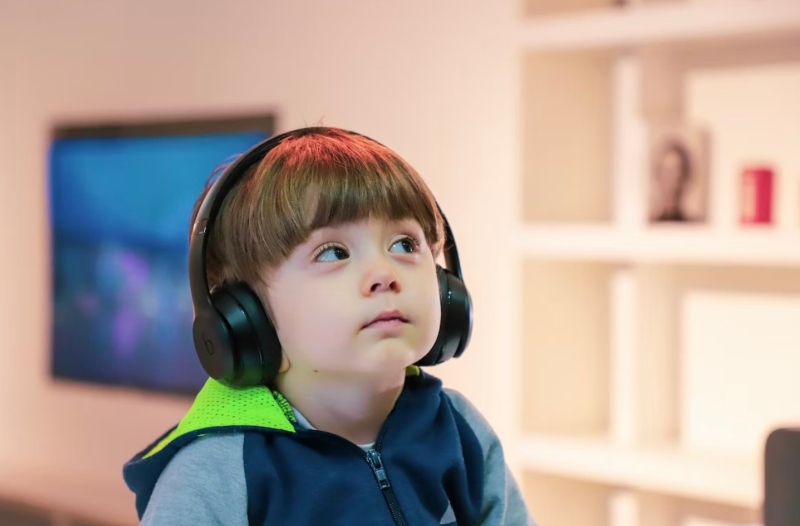In recent years, autism diagnosis rates have tripled in America. According to NBC News, doctors have improved their ability to identify autism among children. They did it through analysis of above-average or average IQs.
Moreover, the Centers for Disease Control and Prevention (CDC) mentioned 1 in every 36 children has Autism Spectrum Disorder (ASD) in the country. ASD affects a child’s ability to react, interact, behave, and live a normal life. The barriers of autism have been prevalent for a long time and society is slowly getting the hang of it.
Dealing with an autistic child requires a great deal of empathy and change in communication. For example, you need to be patient, keep the autistic child away from triggers, stay positive, be respectful, etc.
Do you want to know the influential factors that affect an autistic child’s development? In this blog, we will help you gain insight into the genetic and environmental factors of ASD development.
Can Medication Lead To Autism in Children?
Spectrum News states that certain medications might raise the risk of autism in children. If a pregnant woman takes Valproate to treat epilepsy, then the child is 7x more time to develop autism.
In recent years, the question “Does Tylenol cause autism?” have become a topic of intrigue. A study conducted in 2016 proved that prenatal exposure to Tylenol or acetaminophen can raise the risk of autism or behavioral issues in the unborn child.
The proof of Tylenol’s potential association with autism shocked the world. According to TorHoerman Law, the victims were furious with the pharmaceutical manufacturers and distributors. As a result, they filed various Tylenol lawsuits claiming that they were not warned about the potential hazards of this medicine.
Other studies state that alcohol and drug abuse can increase the risk of ASD, but it is less than 12%. Prenatal use of antidepressants and asthma medication can also lead to autism in the unborn child. Therefore, you are advised to have the recommended dosage. It would be best to consult with a doctor before taking the medications during pregnancy.
The Influence of Genes on ASD Diagnosis
According to MedlinePlus, autism tends to run in families. However, nobody knows the actual inheritance factors. Over one thousand genes were associated with ASD, but not all have been confirmed. Even then, 40% to 80% of ASD risks can be traced back to the genome.
Rare mutations and chromosome abnormalities contribute to this. For example, gene mutations happen in ADNP, ARID1B, CHD2, POGZ, and more. These are the range of genes identified as potential causes for ASD. However, no single gene can take sole responsibility for this.
Either way, these genomes were found to be prevalent amongst children with ASD, as compared to others. The Cold Spring Harbor Lab has been researching the effects of changing genes in autism for over two decades. Recently, they have identified certain genes can increase ASD if they are damaged.
Other research has proved the contribution of genetic markup for autism. Some genes have played a significant role in changing brain development, synaptic functions, and neural connective processes.
Environmental Factors as a Cause of ASD
Various external conditions during pregnancy can affect a child’s development. Similarly, exposure to foreign elements during early infanthood can also be a cause for developing ASD. According to a study by the NIEHS, old age in parents during conception and extremely low birth weight or prematurity can cause autism.
Other environmental effects include prenatal exposure to pesticides and air pollution. Moreover, maternal diabetes, immunity disorders, and obesity can lead the child to develop autism.
Studies show that prenatal exposure to metals and chemicals is a leading cause of autism. Pregnant women who drank faucet water having high lithium levels increased the chance of their child being autistic. Moreover, exposure to heavy metals can be a risk factor.
Other than these, babies with birth weights lower than 2.2 pounds might face development challenges. Hence, premature birth and low birth weight are potential indicators of ASD. Complications during birth and pregnancy can also contribute to this.
Examples include infections and viral diseases like cytomegalovirus, influenza, and more. Moreover, if the infant receives less oxygen during birth, it can lead to developmental disorders in the child.
The Bottom Line
As you can see, autism is a complex disorder that can be influenced by genes, the environment, and medicines. According to the Autism Speaks Organization, you will not find any “singular” cause that influences ASD.
Instead, researchers have speculated that children develop autism due to all the genetic, medicinal, and environmental influences. However, you must know that an increased risk in these influences might not be directly related to the “cause.” For example, you can find the same gene changes in someone who does not have the disorder.
This means that the theory of ASD causation is not complete, yet. Ideally, autistic children are smarter and have high intelligence. All they need is a channel and support to communicate this intelligence.
Today, people are more aware and considerate of children with autism. In Port Washington, fences with “Autism Child Area” boards have been put up for these beautiful youngsters.
